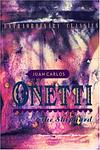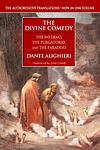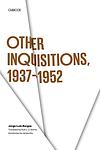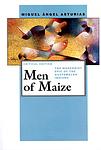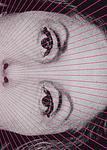The Greatest Latin American "Modernist" Books of All Time
Click to learn how this list is calculated.
Genres
Modernist literature is a category of books that emerged in the early 20th century, characterized by a break from traditional literary forms and a focus on individual experience and perception. Modernist writers experimented with language, form, and structure, often using stream-of-consciousness narration and fragmented storytelling to convey the complexity and ambiguity of modern life. Themes of alienation, disillusionment, and the search for meaning are common in modernist literature, which reflects the cultural and social upheavals of the time. Overall, modernist literature is a challenging and thought-provoking genre that continues to influence contemporary literature and culture.
Date Range
Reading Statistics
Click the button below to see how many of these books you've read!
Download
If you're interested in downloading this list as a CSV file for use in a spreadsheet application, you can easily do so by clicking the button below. Please note that to ensure a manageable file size and faster download, the CSV will include details for only the first 500 books.
Download-
1. Labyrinths by Jorge Luis Borges
"Labyrinths" is a collection of short stories and essays that explore complex themes of infinity, parallel universes, and the blurred lines between reality and illusion. The narratives often feature protagonists who are scholars or librarians, trapped in surreal, metaphysical landscapes. The author's unique writing style combines elements of magical realism, philosophy, and detective fiction, creating an intricate web of narratives that challenge the reader's perception of reality and fiction.
-
2. The Hour of the Star by Clarice Lispector
"The Hour of the Star" is a poignant narrative that explores the life of Macabéa, a poor, unattractive, and naive typist living in the slums of Rio de Janeiro. The story is narrated by Rodrigo S.M., a sophisticated writer who struggles with how to accurately portray Macabéa's simple existence and her tragic fate. The novel delves into themes of identity, poverty, and the human condition, presenting a stark contrast between the lives of the rich and the poor, the educated and the ignorant, and the beautiful and the plain.
-
3. Hopscotch by Julio Cortázar
This avant-garde novel invites readers into a non-linear narrative that can be read in two different orders, following the life of Horacio Oliveira, an Argentine intellectual living in Paris with his lover, La Maga. The story explores philosophical and metaphysical themes, delving into the nature of reality and the human condition, while also examining the struggles of intellectual and emotional life. The second part of the novel takes place in Buenos Aires, where Horacio returns after La Maga disappears, and where he grapples with his past, his identity, and his place in the world.
-
4. The Passion According to G.H. by Clarice Lispector
"The Passion According to G.H." is a philosophical novel that delves into the existential crisis of a wealthy Brazilian woman who, after killing a cockroach in her maid's room, experiences a profound metaphysical crisis. The narrative unfolds as a stream of consciousness that explores themes of identity, existence, and the nature of reality. The protagonist's journey forces her to confront her own humanity, the concept of nothingness, and the chaotic, interconnected nature of life. It's a profound and introspective exploration of the human condition and the meaning of existence.
-
5. Los Siete Locos by Roberto Arlt
"Los Siete Locos" is a complex and dark novel set in the 1920s in Buenos Aires. The story revolves around a man who, disillusioned with his mundane life and the corruption he sees around him, becomes involved with a group of anarchists who plan to overthrow the government. The protagonist is drawn into a world of madness, conspiracy, and philosophical debate, as he grapples with his own sanity and the morality of his actions. The book explores themes of existentialism, societal decay, and the blurred line between sanity and insanity.
-
6. The Shipyard by Juan Carlos Onetti
"The Shipyard" is a novel set in a decaying Uruguayan port town, where the protagonist, a middle-aged man recently released from jail and suffering from tuberculosis, decides to take on the impossible task of reviving a defunct shipyard. The book explores themes of existentialism, disillusionment, and the struggle for meaning in a seemingly absurd world. Despite the bleak surroundings and circumstances, the protagonist remains hopeful and committed to his ambitions, providing a poignant commentary on the human spirit's resilience.
-
7. Paradiso by José Lezama Lima
"Paradiso" is a dense and lyrical novel that delves into the life of a young Cuban man named José Cemí, exploring his intellectual and sensual coming-of-age against the backdrop of early 20th-century Havana. The narrative is rich with poetic language and complex imagery, weaving together themes of family, sexuality, and the search for identity. Through a series of vivid, dreamlike episodes, the protagonist's personal growth is paralleled with the cultural and historical evolution of Cuba itself, presenting a tapestry of philosophical reflections and a deep dive into the nature of reality, time, and existence.
-
8. Explosion In A Cathedral by Alejo Carpentier
The novel is a historical narrative set in the Caribbean during the time of the French Revolution, following the lives of a family caught in the tumult of the era. It explores the impact of European political upheaval on the colonies, as the protagonist becomes involved with historical figures and events, including the revolutionary missions of Victor Hugues. The story delves into themes of power, freedom, and the complex interplay between history and the individuals who live through it, painting a vivid picture of the colonial world and its transformation under the forces of revolution and counterrevolution.
-
9. Trilce by César Vallejo
"Trilce" is a groundbreaking collection of 77 avant-garde poems that explore the complexities of human existence and emotions. The work is known for its innovative use of language and form, challenging traditional poetic norms. It delves into themes of love, death, and existential angst, while also reflecting on the author's personal experiences, including his struggles with poverty and his political beliefs. The poems are characterized by their intense imagery, complex syntax, and a sense of deep melancholy.
-
10. Other Inquisitions by Jorge Luis Borges
"Other Inquisitions" is a collection of essays that explore a wide range of topics including literature, philosophy, and metaphysics. The author uses his profound knowledge of world literature and history to delve into complex subjects such as time, identity, and infinity. He also provides insightful commentary on various authors and their works, reflecting on their influence and significance. The book is marked by the author's characteristic style of blending fiction, reality, and scholarly analysis, making it a thought-provoking read.
-
11. Palace of the Peacock by Wilson Harris
The novel follows a crew of men on a dangerous journey up the Amazon River to find a lost tribe. Led by a domineering, half-indigenous foreman, the crew grapples with the harsh realities of the jungle, their own pasts, and the blurred lines between dreams and reality. As they venture deeper into the wilderness, they are forced to confront their own mortality, the violent legacy of colonialism, and the spectral presence of a beautiful, mysterious woman who seems to embody the spirit of the Amazon itself.
-
12. The Impenetrable Madam X by Griselda Gambaro
"The Impenetrable Madam X" is a provocative play that delves into the complexities of human relationships and societal expectations. Set against a backdrop of surrealism and absurdity, the narrative follows the titular character, a woman shrouded in mystery and power, who interacts with various other characters in a series of disjointed scenes. Through sharp dialogue and symbolic interactions, the play explores themes of identity, power dynamics, and the struggle for understanding within the confines of a world that oscillates between the real and the fantastical. The work challenges audiences to question the nature of reality and the masks people wear in their daily lives.
-
13. Near To The Wild Heart by Clarice Lispector
The novel delves into the inner life of Joana, a young woman with a complex and introspective nature, as she navigates the vicissitudes of her existence. Through a non-linear narrative and a stream-of-consciousness technique, the reader is immersed in Joana's thoughts and experiences, ranging from her childhood to her adult relationships, including her marriage to Otávio. The protagonist's search for meaning and understanding of her own identity unfolds in poetic and philosophical reflections, revealing the struggles of self-discovery and the desire to transcend the ordinary, bringing her metaphorically 'near to the wild heart' of life itself.
-
14. Men Of Maize by Miguel Angel Asturias
The book is a magical realist novel that delves into the lives, traditions, and struggles of the indigenous people of Guatemala, intertwining their personal stories with the mythic and spiritual beliefs rooted in their connection to the land, particularly the cultivation of maize. The narrative, rich in symbolism and poetic language, explores the impact of modernization and exploitation on rural communities, critiquing the forces of colonialism and capitalism that disrupt the harmony between humans and nature. Through a series of interconnected tales, the novel paints a vivid portrait of a culture in transition, grappling with the loss of its identity and the fight to preserve its heritage.
-
15. The Complete Stories by Clarice Lispector
"The Complete Stories" is a collection that brings together the short fiction works of a renowned writer, known for her innovative and introspective style. The stories span through various phases of her career, offering a comprehensive look at the broad spectrum of human emotions and existential themes. Through her distinctive narrative voice, the author explores the inner lives of her characters, often delving into their complex psychological landscapes. The collection showcases her unique ability to blend the mundane with the philosophical, revealing the profound within the subtleties of everyday life.
Reading Statistics
Click the button below to see how many of these books you've read!
Download
If you're interested in downloading this list as a CSV file for use in a spreadsheet application, you can easily do so by clicking the button below. Please note that to ensure a manageable file size and faster download, the CSV will include details for only the first 500 books.
Download




